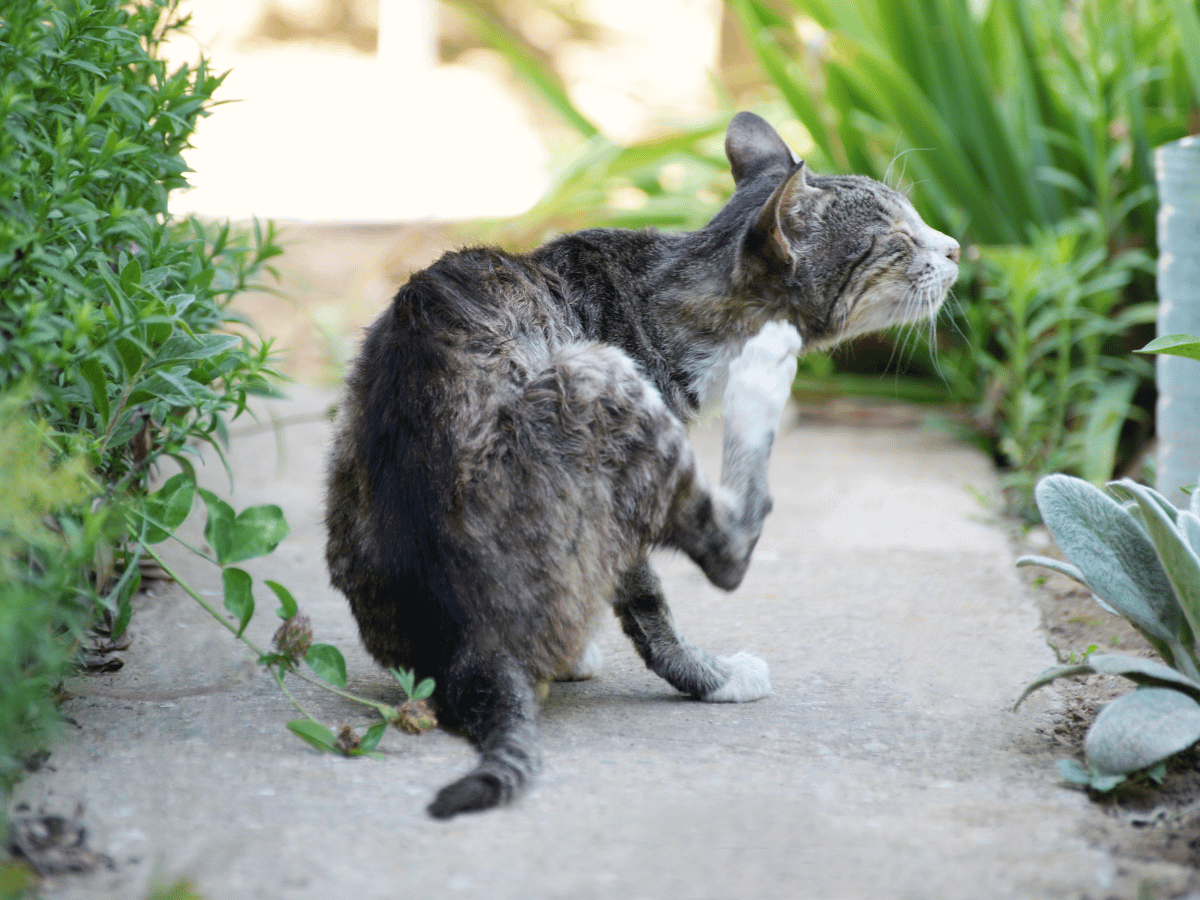
Ringworm in cats: 5 natural solutions for effective treatment 2025
Ringworm in our feline friends can be a real source of stress for any cat owner.
Have you ever experienced watching your furball suffer and struggle with this stubborn skin problem?
At HomeoAnimo, we fully understand your concerns. For years, we've been helping pet owners manage various health issues with our advice and natural remedies.
We are therefore delighted to be able to support you in the natural treatment of ringworm in cats.
- Click to learn more: 👉 NATURAL support for your cat affected by RINGWORM. 🐶
To help you understand and effectively combat this scourge, we'll start by laying the foundations. In the next section, we'll explain what ringworm is and how it can affect your cat.
What is ringworm and how can a cat get it?
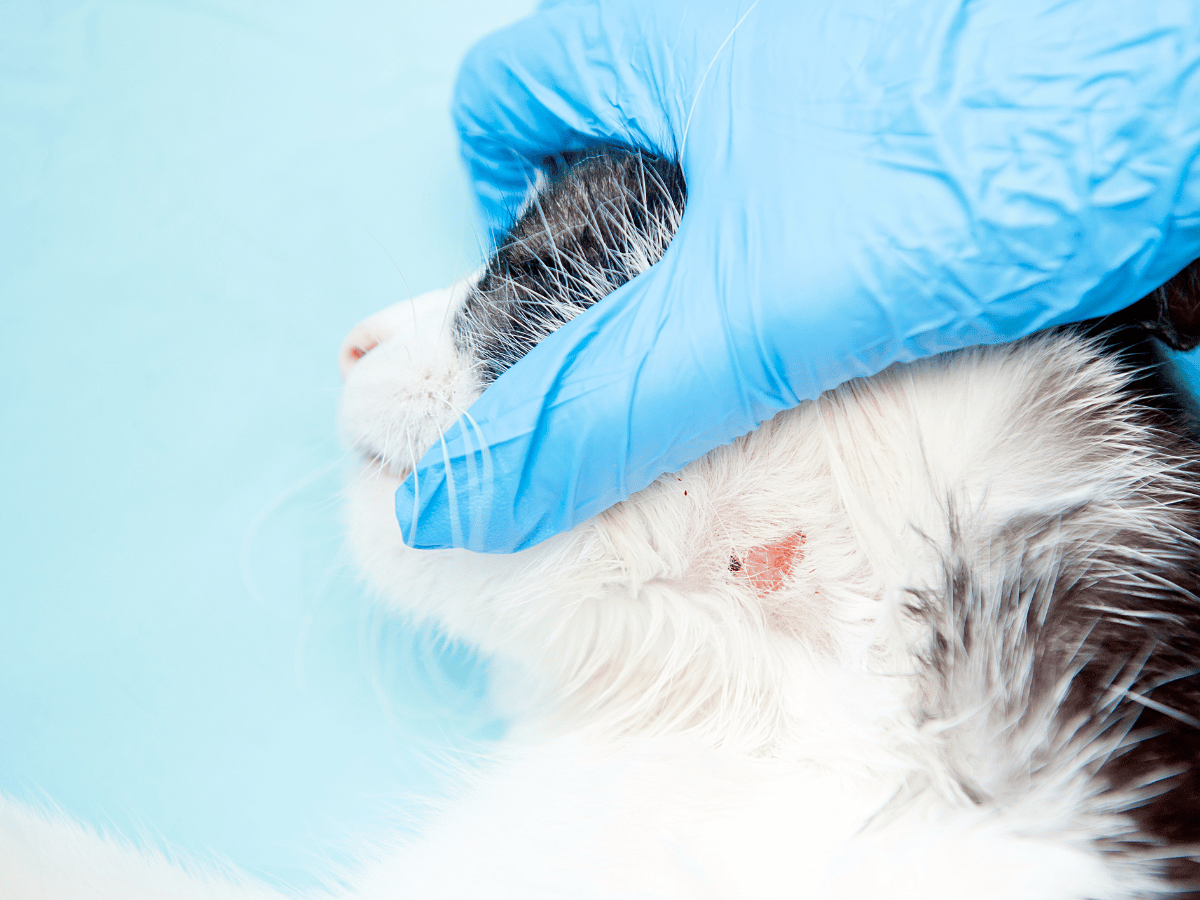
Ringworm in cats is a fungal skin infection caused by a dermatophyte , a type of fungus that feeds on the keratin found in the animal's skin, hair, and nails.
How does a cat get ringworm?
Cats can catch ringworm through contact with other infected animals, contaminated objects (such as rugs, baskets, or brushes), or the environment itself if fungal spores are present.
It is important to note that certain cat breeds are more likely to get ringworm, which may be related to genetic factors or coat characteristics.
How do I know if my cat has ringworm? Read the next section.
What are the symptoms of ringworm in cats?
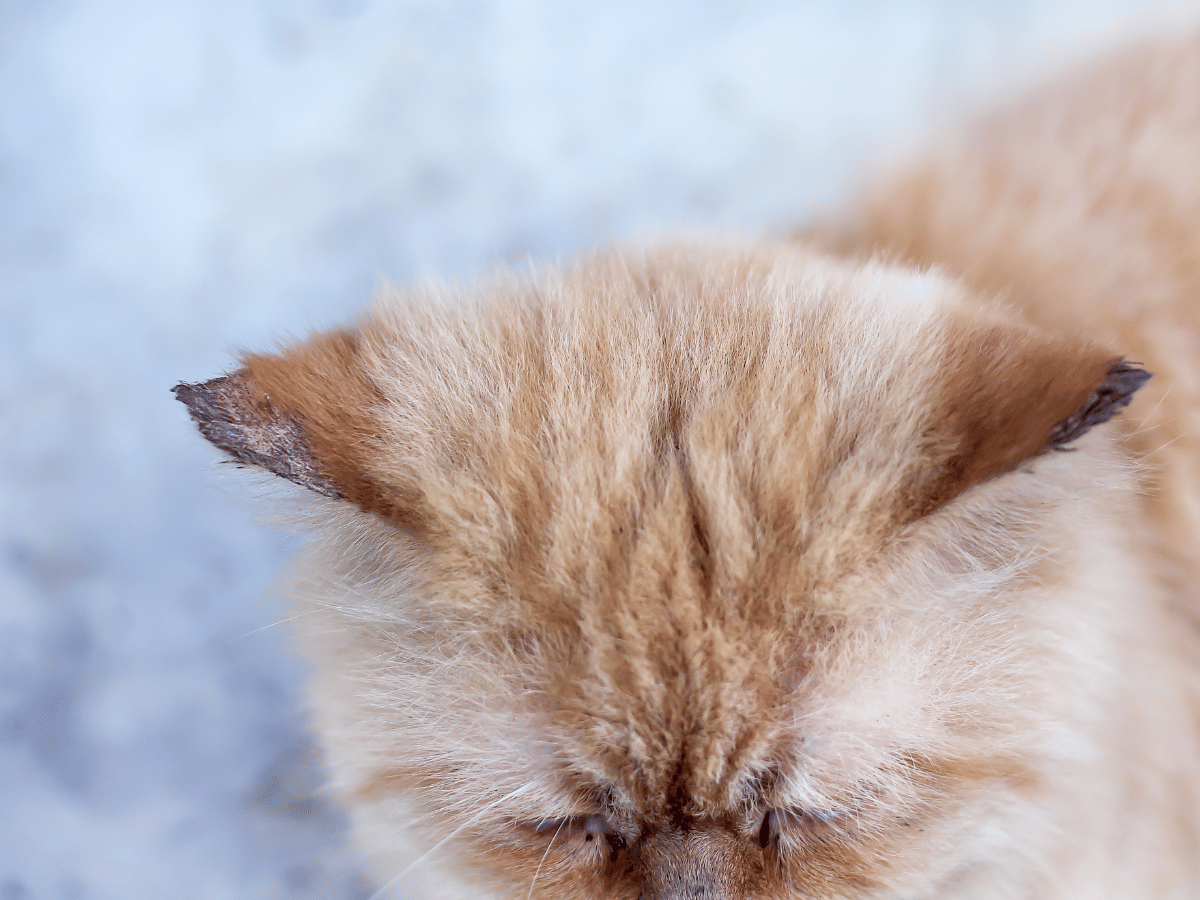
Symptoms of ringworm in cats can vary, but the most common sign is the presence of round, bald areas on the animal's skin, usually accompanied by scabs or a rash.
These areas can appear anywhere on the cat's body, but are most common on the head, ears, and tail.
Other symptoms may include itching, red or inflamed skin, and sometimes deformed nails.
Photo of ringworm in cats
The photo below illustrates a typical case of ringworm in cats, highlighting the bald areas and rashes characteristic of this condition.
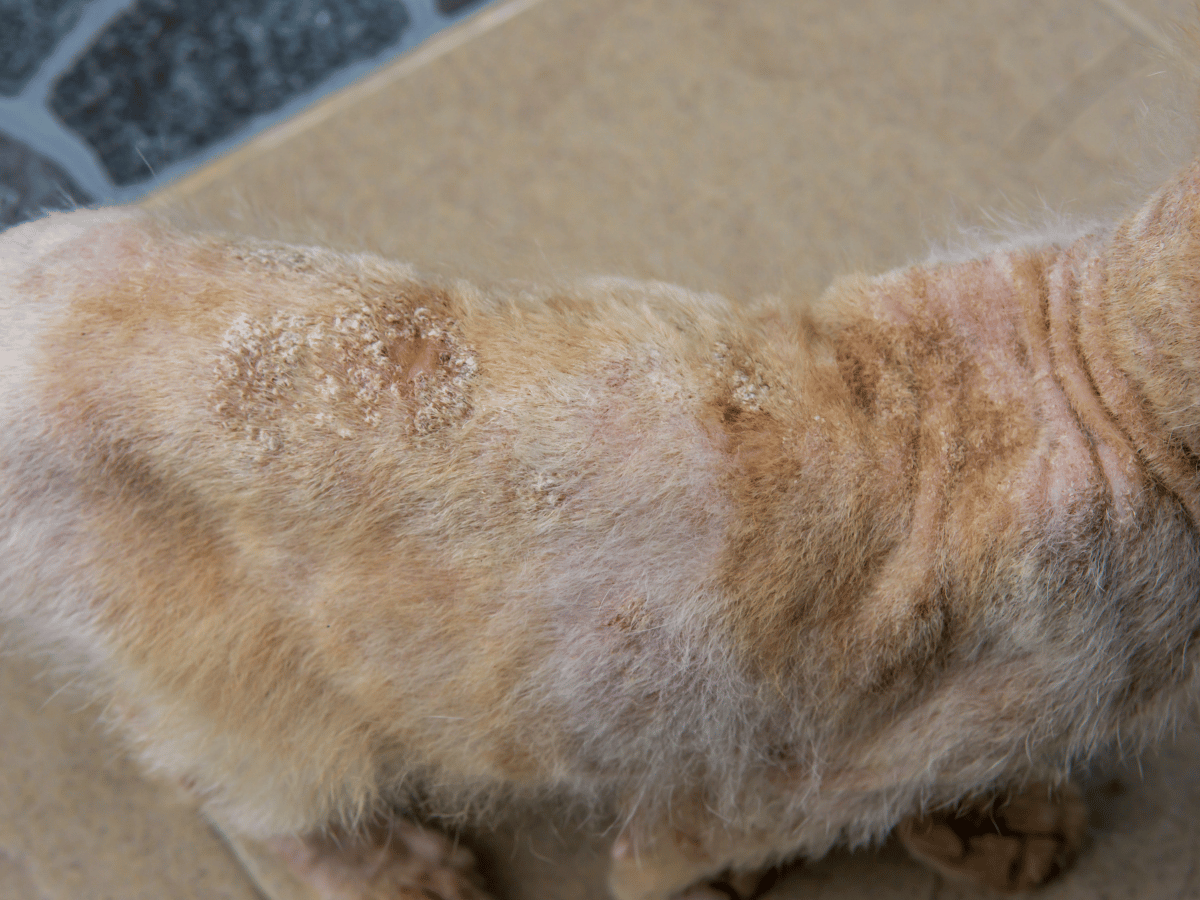
It is important to note that ringworm is contagious and can be transmitted to humans, hence the importance of being vigilant and acting quickly in case of suspicion.
If you are looking for how to treat cat ringworm, the next section is for you.
What conventional treatments are available in pharmacies for ringworm in cats and how much do they cost?

Conventional treatments for ringworm in cats provided by pharmacies generally include antifungal creams, medicated shampoos, and in some cases, oral tablets.
The cost of these treatments can vary, but generally it ranges from 10 to 50 euros, depending on the nature of the treatment and the severity of the infection.
It is important to note that these treatments must be used under the supervision of a veterinarian to ensure their effectiveness and prevent side effects.
Additionally, the average veterinary fee for ringworm treatments in cats is around 150 euros .
If you are looking for a gentler, more natural alternative or an over-the-counter treatment, the next section may be of interest to you.
In this article, we'll explore natural treatments for ringworm in cats, which are often gentler on your pet's skin and may be a great option to consider.
What are the natural treatments for ringworm in cats?

Natural treatments for ringworm in cats, such as coconut oil, apple cider vinegar, and aloe vera, can be an effective and gentle alternative to conventional drugstore treatments. Here are some natural remedies for your cat:
Coconut oil
Coconut oil is a natural antifungal that can help treat ringworm in cats. Simply apply a little coconut oil to the affected areas twice a day until symptoms clear up.
Apple cider vinegar
Apple cider vinegar can also be used to treat ringworm in cats . Simply dilute one part apple cider vinegar to one part water and apply the solution to the affected areas with a cotton swab three times a day.
Tea tree essential oil
Tea tree essential oil is known for its antifungal properties. It can be mixed with water to create an antifungal solution to apply to your cat's skin.
It is important to note that tea tree essential oil should always be diluted before applying to an animal's skin.
Garlic
Garlic has antifungal properties and can be used to treat ringworm in cats. It can be crushed and applied directly to the affected areas or incorporated into your cat's diet.
Aloe vera
Aloe vera is a plant well known for its healing and soothing properties. It can be used to help treat ringworm in cats. Aloe vera can help soothe irritated skin and promote healing of affected areas.
Simply apply a little pure aloe vera gel directly to the affected areas several times a day. Make sure to use an aloe vera gel that is free of additives or preservatives that could further irritate your cat's skin.
A natural remedy for your pet's well-being
In our relentless quest to ensure the well-being of our pets, we have developed a natural solution to optimize your cat's skin health.
 This is our Derm-T (Ringworm) homeopathic remedy , a premium product that has become a go-to for many pet owners.
This is our Derm-T (Ringworm) homeopathic remedy , a premium product that has become a go-to for many pet owners.
If you notice your pet has dandruff, dark red skin, itching, or hair loss, they may have a contagious fungal skin condition.
Derm-T (Ringworm) homeopathic remedy is designed to promote healthy skin. It effectively relieves the symptoms associated with these skin problems that dogs, cats, horses, and other pets may experience.
Derm-T (Ringworm) remedy helps eliminate fungal infection and stops the spread of skin problems.
Made from 100% natural products, it is easy to administer and offers a trusted solution for maintaining your pet's skin health.
Watch our video:
Is cat ringworm contagious and if so, for how long?
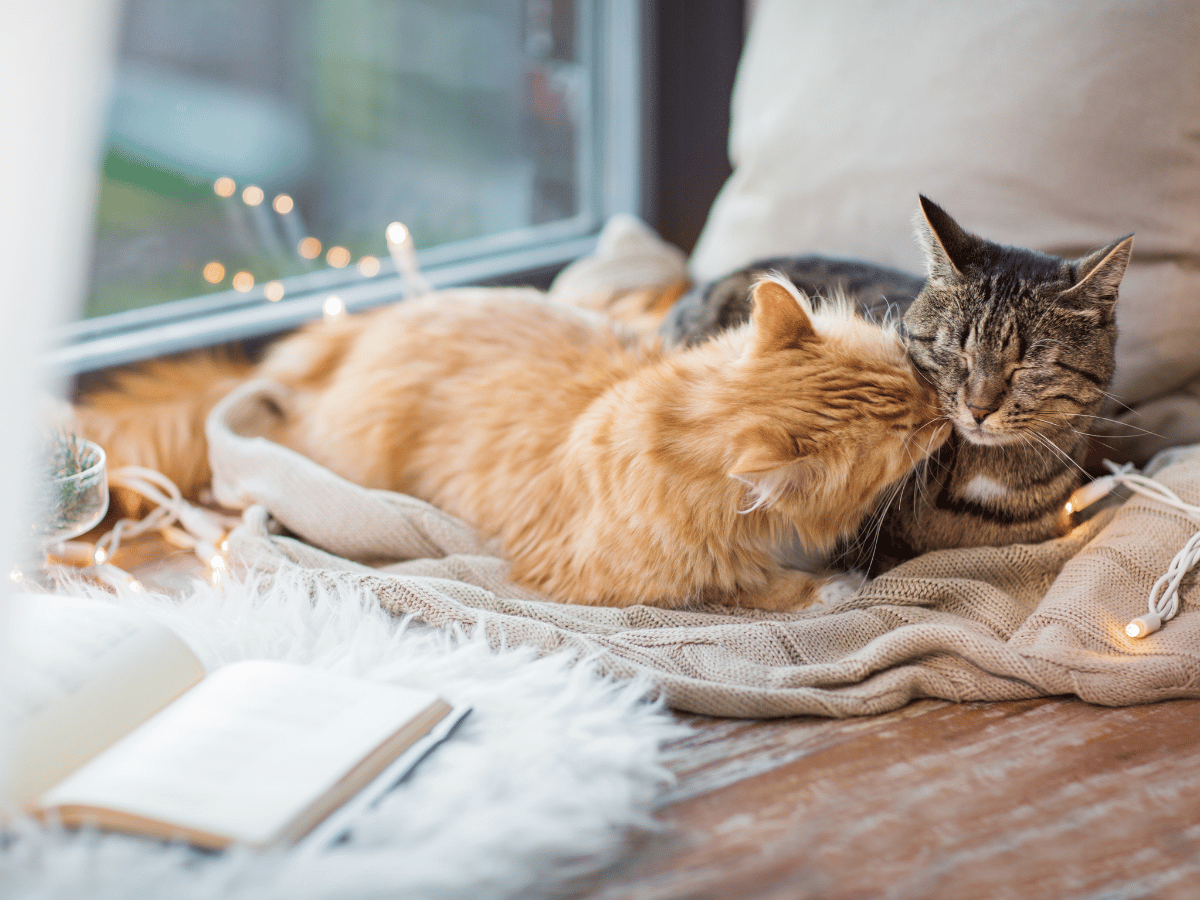
Ringworm in cats is highly contagious and can remain contagious for an extended period of time, sometimes up to several months after treatment begins.
This disease spreads easily to other animals and humans through direct contact with an infected animal or indirectly through contaminated objects or the environment.
The duration of contagion depends on several factors, including the severity of the infection, the cat's overall health, and the effectiveness of treatment.
It's important to note that even after treatment begins, your cat can still spread ringworm until the fungal spores are completely eliminated. This underscores the importance of strict hygiene and environmental disinfection to prevent the spread of ringworm.
In any case, it is essential to consult a veterinarian for advice on how to manage and treat ringworm in your cat.
Can cat ringworm be transmitted to humans and what are the symptoms?
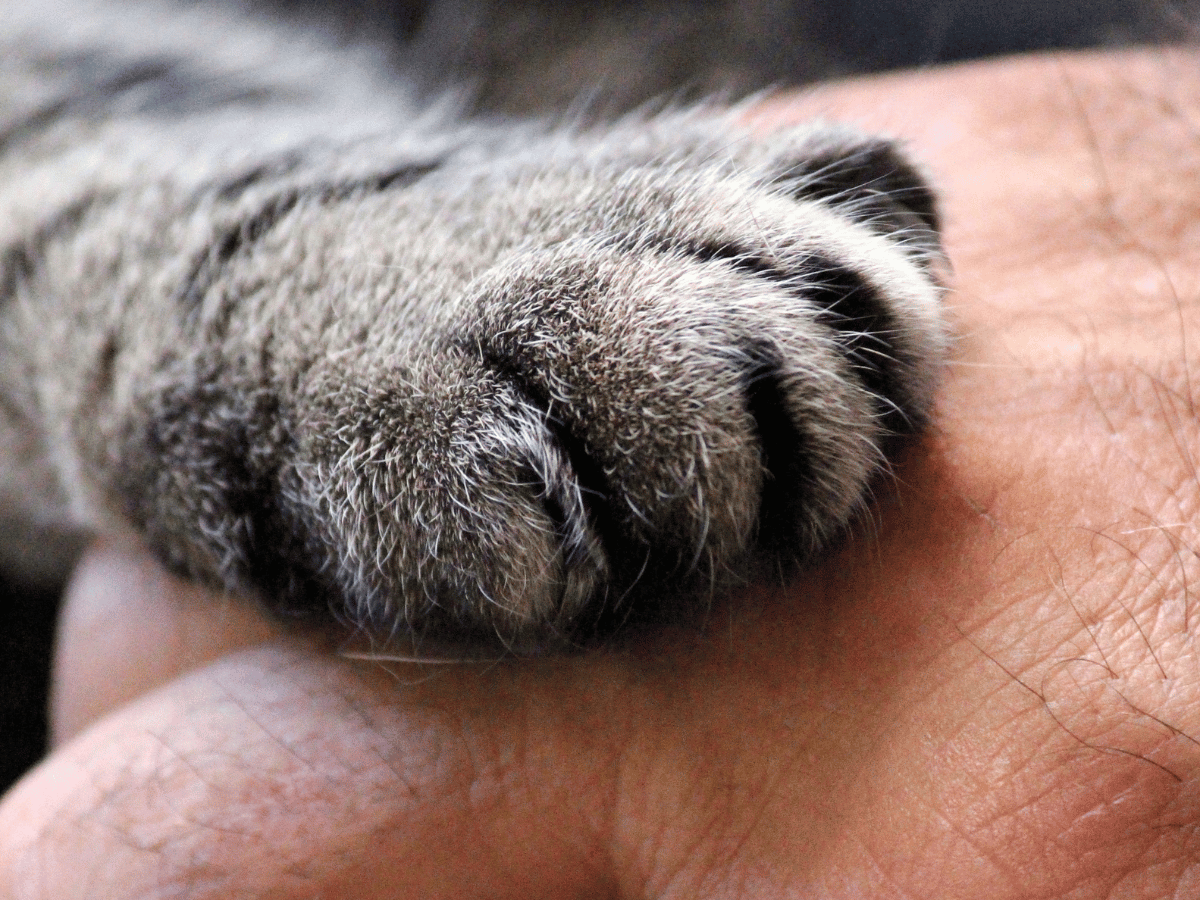
Yes, ringworm can be transmitted to humans, especially if you have close contact with your infected cat.
Symptoms of ringworm in humans include red, scaly patches that may itch, often with rounded edges. There may also be hair loss in the infected area.
Here's a little experiment:
Several years ago, a customer shared her experience with the homeopathic remedy Derm-T (Ringworm) . She had purchased this product for her cat who was suffering from ringworm. After using our product, she noticed a remarkable improvement in her pet's skin.
However, this customer was sleeping with her cat, which resulted in her contracting ringworm. We were able to help the woman. However, you can see how contagious ringworm can be.
How do I know if I have cat ringworm?
If you have been in contact with a cat infected with ringworm and begin to exhibit these symptoms, it is possible that you have contracted ringworm from the cat.
It is important to consult a healthcare professional for proper diagnosis and treatment.
How to treat cat ringworm in humans?
Typically, treatment for ringworm in humans involves the use of antifungal medications applied to the skin.
How to prevent the transmission of ringworm from cats to humans?
Preventing the transmission of ringworm from cats to humans relies on good hygiene and infection control measures. This includes frequent hand washing, especially after touching your cat, and regular cleaning of your home to remove any potentially present fungal spores.
It is also important to treat your cat promptly if it is infected with ringworm to reduce the risk of spreading it.
What is the difference between ringworm and mange in cats?

The main difference between ringworm and mange in cats lies in their causative agents and symptoms.
Ringworm is a fungal infection of the skin, hair, or nails, usually caused by dermatophyte fungi. It manifests as round skin lesions and areas of hair loss.
In contrast, mange is a parasitic infestation caused by microscopic mites that burrow into the cat's skin, causing intense itching, redness, and crusting.
The two conditions require different treatments. While ringworm is usually treated with antifungals, scabies requires antiparasitic treatment.
Additionally, scabies is often easier to treat than ringworm, which may require prolonged treatment and extensive environmental disinfection.
Finally, although both ringworm and scabies are contagious, scabies is generally less likely to spread to humans than ringworm.
Conclusion
In summary, we have discussed ringworm in cats, a highly contagious skin condition that can also affect humans. We have emphasized the importance of veterinary consultation for an accurate diagnosis and appropriate treatment.
Worried about ringworm in your cat?
Don't forget to check out our recommended product which offers a natural solution.
Have you ever encountered ringworm in your cat? What was your experience? Share your answers by leaving a comment below.
Additionally, if you are interested in taking care of your pet naturally, we invite you to fill out our Free Animal Health Recommendation form .
Do you have a health problem with your pet? Our personalized recommendations provide the solution you need.
What will the result be? A healthier pet and peace of mind for you, all thanks to tailored care. This service is completely free and designed to meet the specific needs of your pet.




















Leave a comment
This site is protected by hCaptcha and the hCaptcha Privacy Policy and Terms of Service apply.